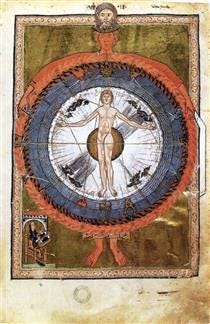
What is the Homo Ludens theory? In The Sounds of Music, when Fraulein Maria arrives at the von Trapp house and speaks with the housekeeper, Frau Schmidt, about the children, Frau Schmidt says:
“The von Trapp children don’t play; they march.”
Captain von Trapp, who had lost his wife, lost his ability to play. He was running away from himself. Grief turned him into a detached disciplinarian. Ironically, this was happening in the 1930s when Johan Huizinga, a Dutch historian, was writing his Homo Ludens (Man the Player).
Observing Nazi Germany in the 1930s, he felt that the spirit of play and spontaneity was slowly replaced by marching. The country was forgetting how to play. Play is spontaneous by definition. No one can be made to play. You can make people march but not play.
Play comes over you when you have no cares in the world. When you care, you can’t play. When you don’t care, you can’t help playing. Huizinga wrote,
“Play is free, is in fact freedom. Play is not ‘ordinary’ or ‘real’ life. It is rather a stepping out of ‘real’ life into a temporary sphere of activity with a disposition all of its own.”
Captain von Trapp was too overwhelmed to play or allow his children to play. He needed Fraulein Maria to burst into his ‘real’ world and reawaken him to the spirit of play. Maria was a God-sent. She saved Captain not only from his self-imposed shell of a man — she saved him from the spirit of marching that was overtaking Germany.
For Maria, play was as natural as breathing. She turned everything into a piece of cake. She turned drapes into children’s clothes, boredom into song, and enemies into friends. That’s what the von Trapp children lacked the most; that’s what they resented their father mostly for — for his refusal to play.
Maria may not have been an “asset to the abbey” because she “waltzes on her way to Mass and whistles on the stairs,” but this was exactly what was lacking in the von Trapp’s household. Captain von Trapp’s soul was dead. He marched to the tune of grief, despair, and apathy and made his kids do the same.
And yet, there was an edelweiss still alive deep down in his soul. Maria’s natural playfulness reawakened the spirit of play in his heart, and the flower bloomed again. She gave him a gift of himself.
“In play there is something ‘at play’ which transcends the immediate needs of life and imparts meaning to the action. All play means something.” Homo Ludens
What did Maria’s play mean? It meant that there was something transcending the immediate needs of life — something beyond the world of care. Captain felt that “something” knocking back into his life. A Life from beyond life. He let down his guard and allowed the spirit of play in.
Why did he refuse to serve in the Royal Navy of the Third Reich? Because of his strong moral and ethical principles? Maybe. But it seems more likely that he didn’t want to march anymore. There was too much play in his soul to march to the Nazi’s tune. The time of seriousness was gone. He was full of life, song, and poetry again.
“[Play] lies beyond seriousness, on that more primitive and original level where the child, the animal, the savage, and the seer belong, in the region of dream, enchantment, ecstasy, laughter. To understand poetry we must be capable of donning the child’s soul like a magic cloak and of forsaking man’s wisdom for the child’s.” Homo Ludens















